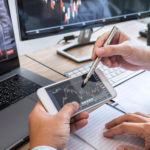As autumn replaces summer, notable insider buying continues to make headlines. Beneficial owners and repeat buyers have increased their stakes, especially in the biotechnology sector, raising questions about market predictions. Such insider transactions often spark interest as they may indicate confidence in a company’s future, drawing attention from investors and analysts alike. The high-volume purchases across different industries provide insight into current market sentiments and highlight potential opportunities for growth. Additionally, these activities underline the importance of understanding the motives and potential implications of insider buying.
Historically, insider buying is often viewed as a positive signal for investors, suggesting that those closest to the company believe in its potential. Past trends show a correlation between insider purchases and future stock performance, although this is not always guaranteed. Investors often keep a close watch on these activities to identify potential undervalued stocks or upcoming positive developments. However, reliance solely on insider buying as a predictor can be misleading without considering broader market conditions and company-specific factors.
What Drives Investors to Buy?
Insider buying can indicate that insiders anticipate a rise in the company’s stock value, seeking profit from future increases. It becomes particularly relevant during periods of market uncertainty, where confidence from insiders could reassure potential investors. Notable recent purchases highlight this belief, with large investments being made in several sectors. Such actions suggest that insiders might see these companies as undervalued or poised for growth despite current market conditions.
How Do Analysts Respond to Insider Buying?
Analysts often interpret insider buying as a positive development but consider it alongside other factors like financial performance and market trends. While insider purchases can boost a stock’s perceived value, analysts remain cautious, often combining this data with comprehensive market analysis. In some cases, insider buying aligns with analysts’ forecasts, reinforcing their investment recommendations, but in other instances, discrepancies may arise, prompting a more detailed exploration of company prospects.
In recent transactions, America’s Car-Mart Inc. reported significant insider buying after a public share offering, even though its stock remains low post-earnings. Similarly, investment firm Control Empresarial de Capitales increased its stake in PBF Energy, although the stock has faced volatility. Meanwhile, Capricor Therapeutics saw insider purchases linked to a major distribution deal, indicating potential growth in its product distribution. Despite mixed financial results, analysts largely view these transactions positively, underscoring potential long-term gains.
The importance of insider buying extends beyond the immediate market impact, offering insights into potential future performance. Understanding these transactions within the broader market context is essential for investors. While they can signal confidence, they should be considered part of a holistic investment strategy, including financial analysis and market conditions.










